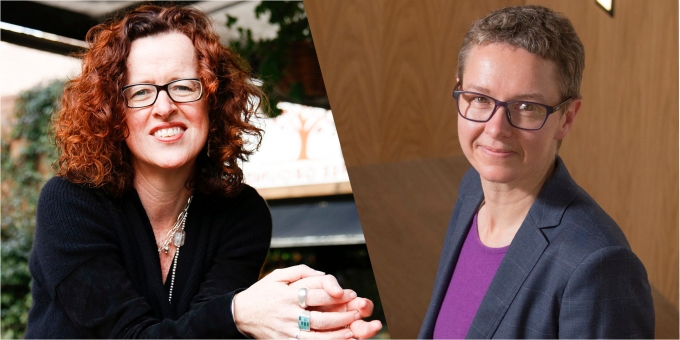Two leading experts from The Australian National University (ANU) have been nominated for an international taskforce to build an ethical framework on artificial intelligence (AI).
Dean of the ANU College of Engineering and Computer Science, Professor Elanor Huntington, and Director of the 3A Institute, Distinguished Professor Genevieve Bell, have been selected among Australia’s first nominations to join a forum for the Global Partnership on Artificial Intelligence (GPAI).
The GPAI is the world’s first multilateral and multi-stakeholder forum with a focus on AI.
Australia is a founding member of the GPAI, along with Canada, the European Union, France, Germany, Italy, Japan, New Zealand, the Republic of Korea, Singapore, Slovenia, the United Kingdom, and the United States of America.
GPAI working groups will collaborate across four themes: Responsible AI, Data governance, Future of work, and Innovation and commercialisation.
Critically, in the short-term, GPAI’s experts will also investigate how AI can be leveraged to better respond to, and recover from, COVID-19.
The forum gives Australia a seat at the table, to guide international work to place humanity at the center of AI development, prevent the irresponsible use of AI, and further its use for social good. The GPAI will also consider how to continue to facilitate a global data economy, and the role that AI needs to play to meet United Nations’ Sustainable Development Goals.
“Part of the work we have to do is decide what to prioritise. Some of the things we’re talking about is how to understand the data economy, how all the open data initiatives are going around the world, the way people trust data or not and how decisions get used,” said Professor Huntington.
“There’s also a strong interest in the Sustainable Development Goals. We’re keen to ensure our understanding of the Australian landscape is brought to this global conversation, and then we can take those insights back to Australia, too, to make sure we stay connected.”
Professor Huntington said the GPAI will consider practical strategies to create global change and further the use of AI for social good.
‘‘IBM, Microsoft and Amazon no longer selling facial recognition software to police forces is a good example of what’s possible to do technically, but does not align to our values. This is much broader than facial recognition. AI appears in a lot of places and it’s about having these conversations before we even make the technology… and how we can direct the thinking to the greater good,’’ she said.
Distinguished Professor Bell is the founder and leader of the 3A Institute at ANU, which was created to keep humanity in technology, and is optimistic that this taskforce is a step in the right direction.
“It is an honour and privilege to be a part of the Global Partnership on Artificial Intelligence working group on Responsible AI. I am committed to taking artificial intelligence safely, sustainability and responsibly to scale. I am looking forward to the forum the partnership provides to address these challenges globally and collectively. I will particularly be looking at how we can ensure that the voices of underrepresented groups are heard,” said Distinguished Professor Bell.
“It is critical that these conversations are happening on a global scale, so we can make strides towards actively and collectively shaping the future we want to see, a future that represents the needs of all humanity and the health of this planet”.
Read more
- “Australia joins global partnership on artificial intelligence”, Minister for Industry, Science and Technology media release
- “Australia joins world-first AI group to tackle ethics, commercialisation”, The Australian Financial Review

